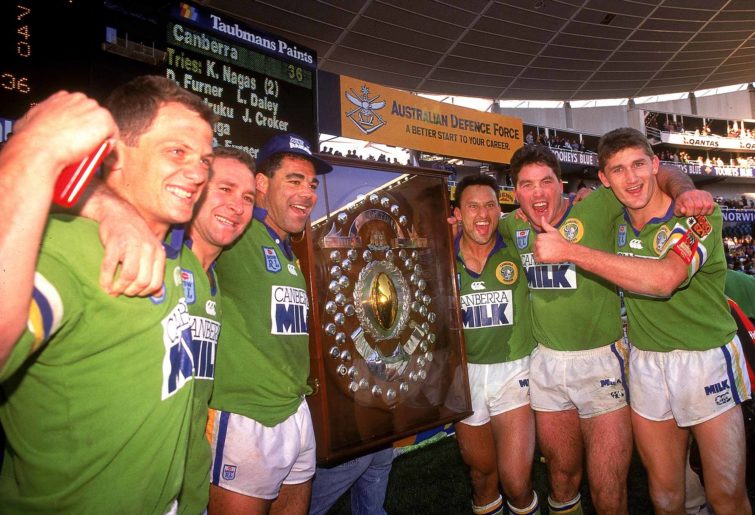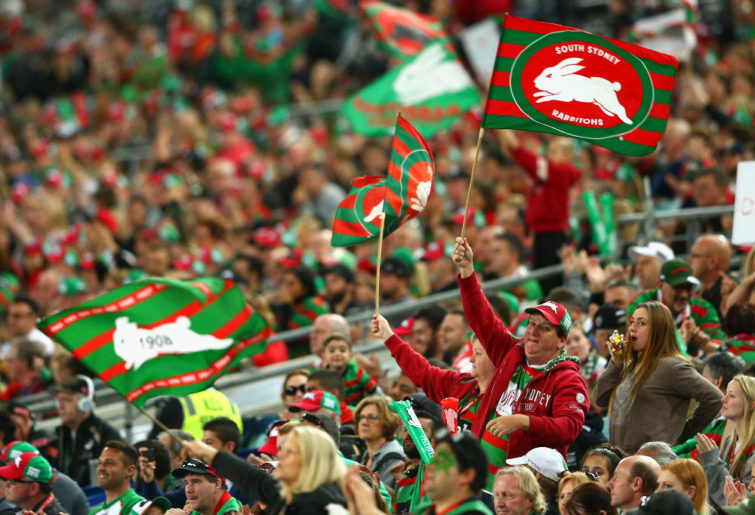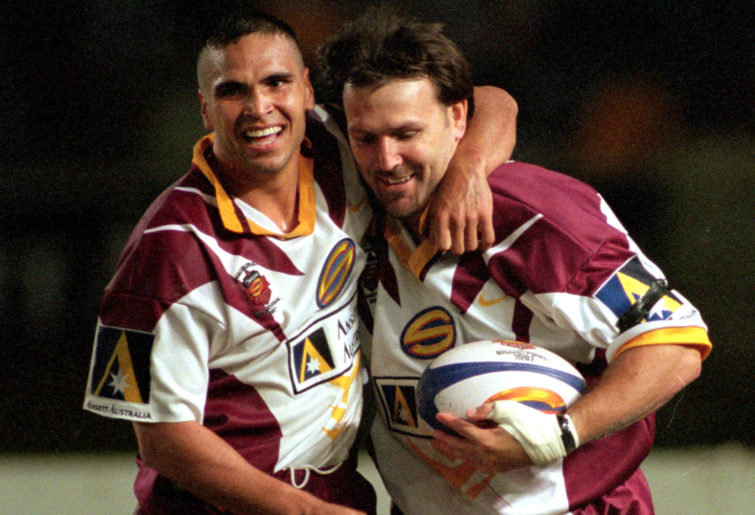NRL Round 8 Team Lists Late Mail: Injury causes Dragons reshuffle, Cleary back, Broncos' mixed news, Eels blood new half
All the team list information for Round 8.
Opinion
This look back on the Super League conflict, in true 2020 style, went on an unscheduled hiatus but is now going to run its course without any weeks off.
Here is a link to Parts 1, 2, and 3. Having so far looked at teams, this article will focus on the players, coaches, and other people particularly affected by the war. Since there are hundreds of potential individuals to discuss, this article is just going to be a non-comprehensive A-Z format.
A quick note: some people’s careers were changed at the time, but unless Super League was a significant factor, they won’t be featured. Mark Carroll, as an example, returned to the representative arena when other players were unavailable, but given the dominance of his Manly side at the time, he would have been a likely candidate anyway. And Jason Taylor’s alleged novel solution to avoiding the bathroom queues at the cricket may have made headlines, but had nothing to do with the war. Injured players, same thing.
A. Chris Anderson
Super League could have ruined Chris Anderson’s coaching career. Instead, it highlighted his ability. In 1995, the Bulldogs were in a state of civil war, with four players getting dropped for breaking their contracts, eventually suing to return to the ARL. Of those, Jarrod McCracken was never reinstated to the side. Their run to win the premiership from sixth position was surely the finest finals run in the game’s history.
The 1996 and 1997 seasons were less successful due to player drain and not adapting to rule changes, but Anderson was entrusted with coaching Melbourne in their inaugural season. Fielding only two players with both representative and finals experience, the Storm were expected to struggle. Instead, with a playing style focused on playing at the advantage line, they finished the regular season in third place in both of their first two seasons.
The 1999 finals brought Anderson’s boldest move, bringing Craig Smith back from a season of reserve grade, moving Matt Geyer into the halves, where he had never played at senior level, and dropping his own son from the five-eighth position. Thank goodness they won the grand final.
B. Russell Bawden
Having Wayne Bennett effectively sack you for your love of booze and ending up in the relative obscurity of the UK Super League would typically signal the death knell for your career in Australia. But for Russell Bawden, having the opportunity to play twice for London against future Melbourne coach Chris Anderson, the World Club Championship provided a lifeline. A Storm premiership and Queensland jerseys were the eventual reward.
C. Bradley Clyde
Arguably the best forward of the era, the Canberra lock had been an automatic selection for NSW and Australia. Along with Brett Mullins, Laurie Daley, Ricky Stuart and Steve Walters, he took the ARL selectors to court to challenge the blacklisting of Super League-aligned players from representative teams. They won, but were still overlooked for selection.

(Photo by Getty Images)
After 1998, with the Raiders under salary cap pressure, he and Stuart ended up having to find a new home at the Bulldogs. Clyde’s main headlines from then included getting ruled out of Origin in 1999 after falling off a horse, and earning a try assist in 2000 when a bomb bounced off the top of his head.
D. D Durack
Most people would struggle to remember Durack, a fixture in the Western Reds’ second row in ARL 1996. But that’s largely because he only existed in the PC game bearing that name. The war compromised the long-planned release of the EA Sports game with the ARL owning the commercial rights to the usage of all club names and logos, but only to the players aligned with their competition.
This meant that every play involving a Super League player required a false name in Ray Warren’s commentary (Paul Vautin also contributed, though he was only required to provide mildly amusing insults). The flip side of those commercial rights came up in 1997, when the rebel teams were known as Super League Brisbane, Super League Canterbury and so on, with only the competition’s logo in their own colours to differentiate them.
E. Steve Edmed
The reluctant face of the player salary explosion of the war, Steve Edmed was an underrated Balmain prop off the radar of representative selectors and nearing the end of his career. He gained notoriety after the first episode of The Footy Show to air after the first batch of signings. Edmed’s handsome contract was used as the example to dispute the claim of Super League only signing the best of the best. His career ended two games into 1996, following a neck injury.
F. Denis Fitzgerald
The Parramatta supremo used his boardroom power in both the leagues club and the football club to maximise profits and build a premiership contender. Players who stayed loyal to the ARL but were contracted to Super League clubs invariably ended up in the yellow and blue.
Fitzgerald was a major advocate of the NRL’s rationalisation, notably sporting a Parramatta Tigers cap. Balmain weren’t the only team approached about a joint venture, with the common theme of negotiations being that the other team would retain their nickname while the Eels would basically get everything else. He was also said to be behind the promotion of the 1999 final-round clash with the Rabbitohs as the last ever chance to see South Sydney play.

(Photo by Cameron Spencer/Getty Images)
G. Jamie Goddard
The grim reaper of the war, the hooker played in the final seasons for the Chargers, Bears and the Northern Eagles. He also belted the snot out of Andrew Johns in a 1997 Origin game.
H. Ray Hadley
As a panelist on The Footy Show and the head of the then 2UE syndicated Continuous Call team, Ray Hadley’s opinions helped to shape the public debate, with him staunchly supporting the ARL. With the commercialisation of the media coverage, his station lost their coverage rights. Initially, Hadley led a pirate broadcast of matches but soon after his team ended up simply continuing their discussions during game time. They still won the ratings.
I. Ben Ikin
An extreme shortage of Queenslanders aligned with the ARL in 1995 led to the Seagulls centre playing Origin based almost exclusively on lower-grade form. He was actually dropped back to reserve grade later in that year before finding more success with the Bears and Broncos.
J. Andrew Johns
Newcastle started the 1995 season with a club record nine consecutive victories, which would have enhanced Johns’ claims for representative selection. But Daley and Stuart’s Raiders also started 9-0, were coming off a premiership win and were the Kangaroo incumbents. And that’s just for Country Origin. The eighth Immortal leapfrogged a good dozen players to play in the World Cup final that year, and eventually had to play hooker to do so.
K. Brett Kimmorley
Andrew Johns had a lot of understudies, including Jason Martin, Matt Rodwell, Leo Dynevor, Justin Holbrook, John Morris and Steve Witt, all of whom had to find different clubs to secure game time. Brett Kimmorley was no different, but the Super League war created unique opportunities.
Two more clubs were added to the fold, including one in his home town. The desperate rush to sign players by both sides allowed him a full-time salary while playing reserve grade. Still a reserve grader at the Hunter Mariners, a NSW call-up for Noel Goldthorpe – who would have been further down the pecking order in a united competition – left a vacancy at halfback for Kimmorley to fill, which he kept for the rest of the season.
End-of-season injuries to other halfbacks put him on an end-of-season tour to England and into a Test jersey. In subsequent years, the ARL experiment of naming Johns at hooker meant Kimmorley was the first-choice representative number seven.
L. Dean Lance
The coaching equivalent of Jamie Goddard, the former Raiders captain was there as the Reds were kicked out before taking over mid-season in 1998 at the Rams, only to suffer the same fate at the end of the year.
M. Anthony Mundine
Over a four-year stretch, the evasive five-eighth played grand finals for three different clubs in three different competitions. St George would not release Mundine to the Broncos for the 1996 season, where he was going to join after signing with Super League. The Dragons’ decision was vindicated by a grand final berth.
The next season saw a premiership with Brisbane but dissatisfaction on a personal level thanks to being overlooked for representative selection, and due to the presence of Kevin Walters, he was forced to play in the centres. Mundine returned to St George partly as a result of this.

Anthony Mundine (left) and Michael Hancock helped Brisbane to the one and only Super League title in 1997. (Photo by Duane Hart/Getty Images)
The 1998 season was blighted by Mundine being subjected to racial abuse by Canterbury’s Barry Ward, with the added negativity of the end-of-season potential of again losing his five-eighth jersey, this time to Trent Barrett. The solution of having the playmakers each control one side of the field was unprecedented and has become the most common halves structure in the modern game.
The 1999 season brought a long-awaited State of Origin debut and a third grand final, but Mundine still remained unhappy with the game’s establishment, alleging discrimination. It eventually resulted in his abrupt retirement in early 2000 with Mundine following in the footsteps of his father Tony, and launching a successful boxing career.
Mundine’s contribution to the game continued afterwards, flirting with making comebacks in Nines tournaments, advocating for Indigenous players, involving himself in contract disputes, and in appearances on The Footy Show, again losing out to a five-eighth in the contest for the unfunniest person in rugby league, with Wally Lewis taking that title.
Next week, N-Z. You know what to do below.